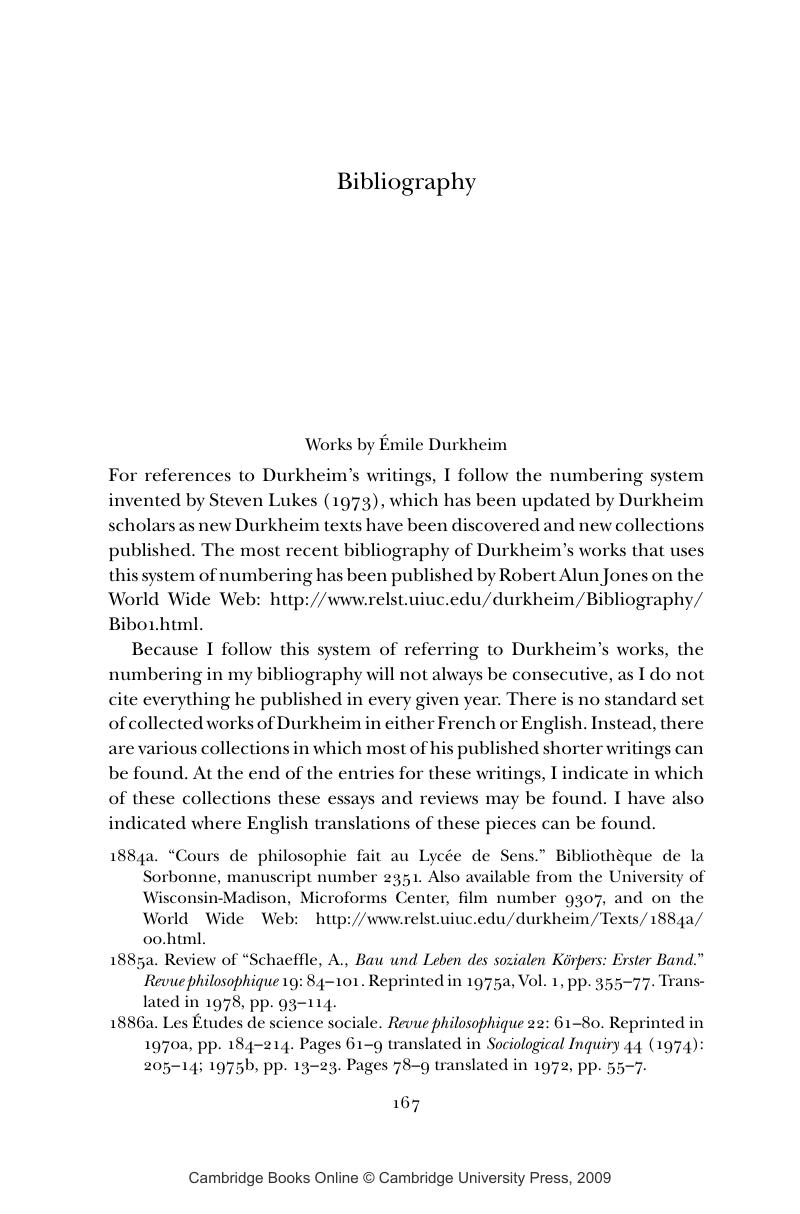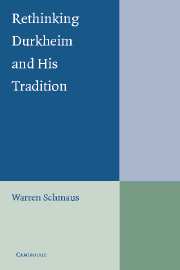Book contents
- Frontmatter
- Contents
- Preface and Acknowledgments
- 1 Durkheim and the Social Character of the Categories
- 2 Historical Background: Aristotle and Kant
- 3 The Categories in Early-Nineteenth-Century French Philosophy
- 4 The Later Eclectic Spiritualism of Paul Janet
- 5 The Early Development of Durkheim's Thought
- 6 Durkheim's Sociological Theory of the Categories
- 7 Prospects for the Sociological Theory of the Categories
- Notes
- Bibliography
- Index
- References
Bibliography
Published online by Cambridge University Press: 16 July 2009
- Frontmatter
- Contents
- Preface and Acknowledgments
- 1 Durkheim and the Social Character of the Categories
- 2 Historical Background: Aristotle and Kant
- 3 The Categories in Early-Nineteenth-Century French Philosophy
- 4 The Later Eclectic Spiritualism of Paul Janet
- 5 The Early Development of Durkheim's Thought
- 6 Durkheim's Sociological Theory of the Categories
- 7 Prospects for the Sociological Theory of the Categories
- Notes
- Bibliography
- Index
- References
Summary

- Type
- Chapter
- Information
- Rethinking Durkheim and his Tradition , pp. 167 - 182Publisher: Cambridge University PressPrint publication year: 2004



